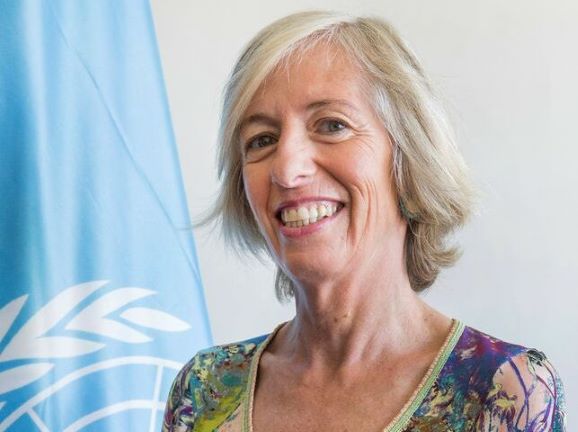UNESCO And The Republic Of Korea Continue To Steer Digital Transformation Of Education In Africa

From Cyber Era NG Special Correspondent
From 4 to 6 March 2024, UNESCO hosted the participating countries of the “ICT Transforming Education in Africa” project—an initiative to strategically steer the integration of technology in education.
The “ICT Transforming Education in Africa” project
Initiated immediately after the adoption of the Incheon Declaration on SDG4 in 2015, and backed by US$ 12 million support from the Republic of Korea, the project’s foresight into the digital transformation of education found unanimous validation among the participants of this working meeting. This gathering also marked the successful conclusion of the second phase of the project in Côte d’Ivoire, Ghana and Senegal and the commencement of the third phase in Namibia, Uganda and the United Republic of Tanzania.
Facilitating knowledge sharing among countries
Reflecting on the significance of the African Union Year of Education, Ms Stefania Giannini, UNESCO Assistant Director-General for Education, suggested that this could even be seen as A Year of Digital Learning given the possibilities for African countries to use technology to “leapfrog” progress. She remarked that whilst Africa was facing some complex challenges posed by a severe education crisis, 41 African countries made commitments on digital transformation and learning at the Transforming Education Summit (TES) in 2022. The Call to Action for Public Digital Learning that emerged from TES, centred around three key pillars — content, capacity and connectivity — has boosted international impetus to cooperate on this fast-evolving dimension of education policy.
The meeting mobilized representatives from Cote d’Ivoire, Ghana and Senegal to showcase project results and achievements. One of Senegal’s key achievements consists of three self-assessment platforms designed for students focusing on STEM (science, technology, engineering and mathematics) subjects, as part of the “content” pillar. Additionally, both Ghana and Côte d’Ivoire presented their initiatives involving Open Educational Resources (OER) platforms and learning materials that incorporate the use of technology, which aim to enhance in-classroom learning experiences.
All three countries also shared lessons on developing national ICT Competency Frameworks for Teachers as part of the project, emphasizing how the enhancement of the “competencies” pillar ensures a durable impact of the project by investing in teachers. Even more significant for the sustainability of the project was the development of national ICT in education policies, also referred to as digital education policies. These policies were presented as a testament to a strong commitment towards long-term sustainability and the country’s ownership of project interventions.
Steering a holistic approach to digital transformation of education
Looking ahead to the implementation of the third phase in Namibia, Uganda and the United Republic of Tanzania, country representatives outlined their aspirations for the school students, teachers and education policies of their respective countries. The wealth of support available from UNESCO in the area of digital learning was highlighted, including UNESCO Guidelines for ICT in education policies and masterplans, Guidelines on the development of OER policies, Guidance for generative AI in education and research, the UNESCO-UNICEF joint initiative on Gateways to public digital learning, the UNESCO ICT Competency Framework for Teachers, the ongoing efforts to finalize the UNESCO AI competency framework for teachers as well as the work on Media and Information Literacy.
As Phase III kicks off, the three new beneficiary countries embark on formulating country-specific work plans, assessing needs and strategizing systemic change. UNESCO is committed to supporting activities across four major areas of intervention: 1) formulating policies for ICT integration and digital learning, 2) developing ICT competency frameworks for teachers and strengthening in-service and pre-service teacher training on ICT, 3) enhancing digital learning platforms and content, including though leveraging Open Educational Resources, and 4) implementing digital skills programs for learners.
Representing the project’s donor, Ms Sang Mee Bak, the Ambassador of the Republic of Korea to UNESCO announced that the upcoming phase will benefit from increased support from the Korea Education Research and Information Service (KERIS). During the meeting, KERIS officials provided an impressive overview of Korea’s plan for the digital transformation of education, unveiled recently and representing over thirty years of evidence-based policy planning in the fields of technology and education. Ms Bak also was keen to state that seconding KERIS officials to the respective education ministries will also enrich Korea’s experience regarding digital learning.
UNESCO will continue to bring together Member States to build a collaborative community on digital education dialogues with an aim to steer human-centred digital transformation of education in alignment with the unique needs and aspirations of each participating country.
The “ICT Transforming Education in Africa” project
The UNESCO-Korea Funds-in-Trust project on Transforming Education in Africa, has been promoting public digital learning for all since 2015, in nine countries across three phases. It has actively supported the development of national ICT in education policies, the formulation of comprehensive digital competency frameworks for educators and learners and the strengthening of institutional capacities to catalyze system-wide digital transformation of education.
The target countries are Mozambique, Rwanda and Zimbabwe for Phase I; Côte d’Ivoire, Ghana and Senegal for Phase II; and Namibia, Uganda and the United Republic of Tanzania for Phase III. The project aligns with the 2022 Transforming Education Summit’s call for quality public digital learning for all.



